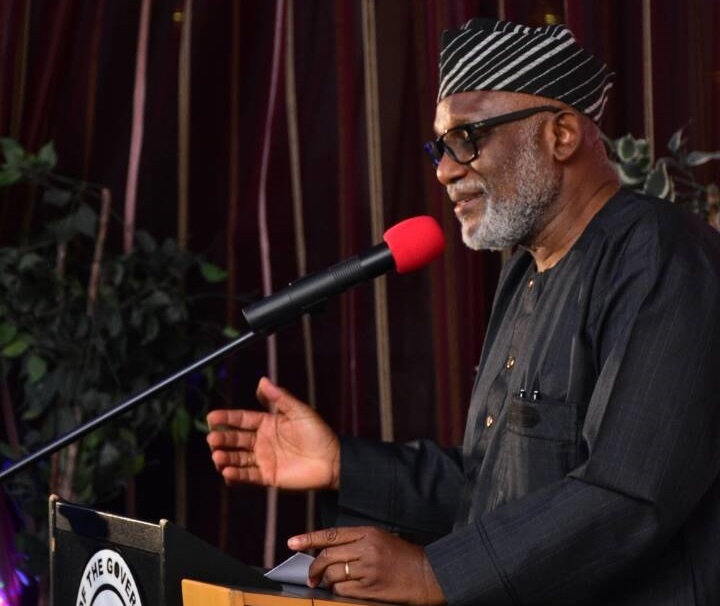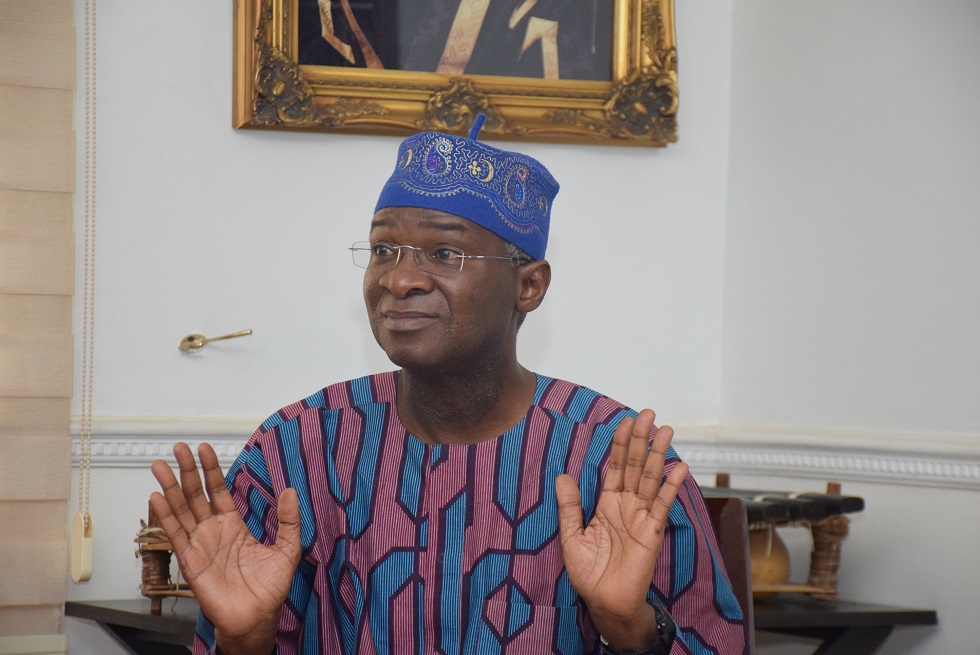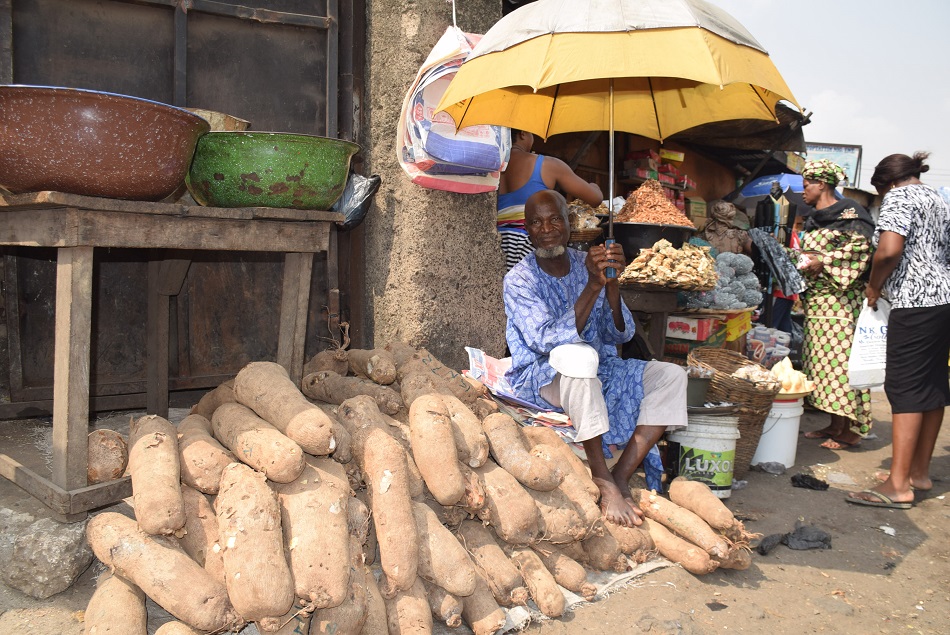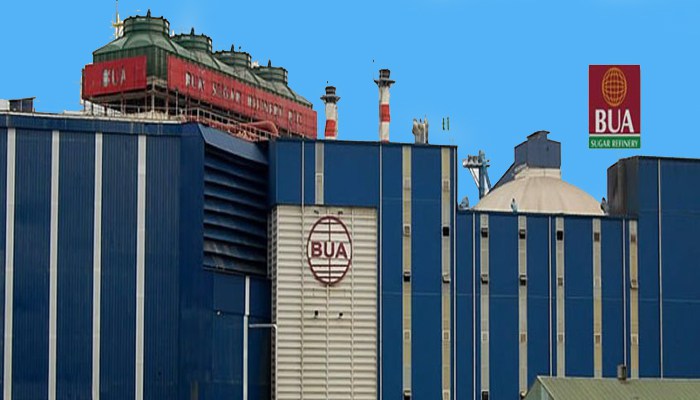The outbreak of the Coronavirus (COVID-19) pandemic in Nigeria, with the first index case recorded on the 27th of February, 2020, resulted in many governmental agencies releasing guidelines and policies to help control and manage the situation in the country. The Nigeria Port Authority (NPA) was one of the agencies that released a press statement in conformity with the COVID-19 Regulations signed by the President of Nigeria, Muhammeda Buhari, on the 30th of March, 2020. The NPA on March 31st 2020 released a press statement informing the general public that operations will continue at the country’s seaports while also guaranteeing the wellbeing and security of stakeholders and staff by putting in place safety measures.
Despite the continued operational status of the Nigerian Port Authority, a major challenge faced by the NPA and clearing agents was the restriction order imposed on movement which made it difficult for clearing agents and port users to access the port easily. The disruption caused by COVID-19 to many businesses, and particularly importers who have been faced with challenges of clearing their goods, necessitates the important discussion of whether “demurrage” continues to run during this period. The answers to the below questions are vital to this discussion.
What is Demurrage?
Demurrage is a charge payable to the owner of a chartered ship on failure to load or discharge the ship within the time agreed. It is also described as the charges paid by the owner of goods for extra days the cargo has overstayed in the port beyond the government approved date. Once the free time elapses, a storage fee otherwise known as demurrage begins to run on the cargoes at the port on a daily basis.
Advertisement
Who should pay demurrage charges?
Demurrage charges are payable by the Importer or Consignee. An importer or a consignee is a person who is designated as the receiver of goods and is usually the owner of the goods. This may be an individual or a company and unless otherwise instructed, the person indicated as the consignee on the bill of lading is legally required to be physically present to collect the goods.
What are the different types of demurrage?
Advertisement
There are two types of demurrage, that is, the “terminal demurrage” and “Shipping company demurrage”. Shipping company demurrage refers to charges payable to a shipping line in situations of late container clearance and return. Terminal demurrage on the other hand refers to charges payable to terminal operators for delay in clearing goods from the port beyond the free period.
When does a Demurrage charge begin to run?
For “Terminal Demurrage”, there is no standard time for commencement as it varies from one terminal operator to the other. Depending on the Terminal Operator, Importers who have container(s) at the port are usually given a free period of between two (2) to five (5) working days, inclusive of Saturdays to access, clear and take delivery of their goods before they begin to incur terminal demurrage.
For shipping company demurrage, the Importer has a free period of five (5) days before he begins to incur shipping company demurrage. The free period is known as the shipping line free days and it is expected that the Importer take delivery, clear the cargo and return the container within the free days. The charges count till the day the container is returned to the shipping company. It is also important to note that most of these shipping companies have different charges for different sizes of containers.
Advertisement
What causes delay in clearance of goods at the port?
Delay in clearance of goods at the port may be caused by a variety of reasons. Many Importers experience challenges at the point of clearing their goods such as:
- Delay in receiving documents for customs clearance
- Documentation procedure
- Complicated customs policies
- Poor road access to the port
- Inability to do customs clearance on time
- Lack of funds to clear the goods
The outbreak of Covid-19 which resulted in restriction of movement during the lockdown period has also caused delay in clearance of goods, as clearing agents and importers face the challenge of accessing the port to clear their goods, fear of being infected, amidst other challenges.
Are there any incentives from the Nigerian Port Authority or other related agencies for Importers during the lockdown period?
Advertisement
The Nigerian Port Authority directed all terminal operators to suspend all applicable terminal storage fees on consignments (demurrage) from an initial period of twenty-one (21) days effective from March 23, 2020. The demurrage suspension was further extended by another fourteen (14) days effective from April 13, 2020. The Authority gave this directive as a result of the pressure that the COVID-19 pandemic is imposing on businesses and also in line with its objective of facilitating the Federal Government’s Ease of Doing Business Policy. The implication of the above is that payments of demurrages were suspended during the above stipulated period of time.
Likewise the Nigerian Shippers Council (NSC) directed all shipping companies to suspend demurrage charges on cargoes during the period of the Covid-19 lockdown effective from March 30th 2020.
Advertisement
I was made to pay demurrages for my goods that I could not clear during the lockdown period against the directives of the Nigerian Port Authority and Nigerian Shipping Council. What is the effect of non-compliance by terminal operators and Shipping companies with the directives on demurrage suspension?
The Nigerian Port Authority in its press statement emphasized that it will not tolerate any form of non-compliance with the directives on demurrage suspension and will not hesitate to apply the appropriate sanctions.
Advertisement
Furthermore, following complaints by consignees and clearing agents that they are being required to pay demurrages for their cargoes despite the directives, the Nigerian Shippers Council sent out a public notice stating that the shipping lines have substantially complied with the suspension of demurrage on cargoes that arrived Nigeria within the lockdown period i.e. 30th March to 3rd May, 2020. However, in line with ensuring compliance with the directives on the suspension of demurrage on cargoes, they have requested that consignees and agents experiencing problems should forward their complaints to +2348023518507 or +2348023021173, and email [email protected]. The following documents are to be presented by the complainants: bill of lading, debit note and receipt of payment.
All complaints regarding payment of demurrages during the lockdown period are to be directed to the relevant authorities (i.e. NPA and NSC).
Advertisement
Is it true that the NPA has promised to compensate the terminal operators for granting this relief measures to port users?
The NPA having recognised the financial implications the suspension of demurrage charges will have on terminal operators, has assured them in its press statement released on 23rd of March, 2020 that it will consider a shift in their operational charges. The NPA further assured terminal operators in a letter dated April 8th, 2020 with reference number HQ/GM/MRS/OP/L.1/VOL.11/37 of a payback using credit notes that will be commensurate to the rental reliefs granted by each terminal to consignees.
Were there any means of transportation provided to enable access to the port during the lockdown period?
In order to ease movement of port users and accredited freight forwarders to the port during the lockdown period, the Nigerian Shipping Council provided buses to and from the ports which took effect from 1st April 2020. Provisions were made for pickup from the following locations: Ikotun, Ejigbo, Cele, Ikorodu, Ketu, Ojuelegba, Stadium, Costain, Badagry, Trade fair, Iyana-Oba, Mile2, Ogba, Ikeja, and Maryland.
With the provision of a means of transportation to access the port during the lockdown, was there any restriction on the category of goods that could be cleared?
Clearance of goods at the port during the lockdown was limited to only essential commodities such as drugs, medical equipment and consumables. The Nigeria Custom Service advised that those with luxury goods would have to wait until after the lockdown to clear them.
I was unable to access the port and clear my goods during the lockdown, because of restriction of movement and non-operation of commercial banks that are in charge of the documentation process and payment of custom duty. Will I be liable to have delayed or abandoned my goods at the port? Please advice.
The Nigerian Port Authority and other related agencies operating the Nigerian port are much aware of the restriction of movement and the non-operation of the commercial banks that forms part of the day to day running of the activities at the port. Having taken into consideration the pressure that the COVID-19 pandemic has imposed on businesses and the difficulties faced by importers and clearing agents, a relief period was granted on goods at the port during the lockdown period. However, the relief period within which demurrage charges were suspended does not extend beyond the stipulated period of 28th of April and 3rd of May, 2020 for Terminal demurrages and Shipping company demurrages respectively.
By implication, demurrage charges begin to run after the expiration of the suspension and goods that are not cleared afterwards are termed delayed and will thereafter be termed abandoned after three months of non-clearance.
The NCS has warned that consignees are not to use the suspension of demurrage charges as an excuse to delay or abandon cargoes at the ports. We would therefore advice that a port user so affected should make every effort to clear their goods as soon as possible and also inform the relevant authorities of their challenges.
What measures have been put in place to address the issue of interstate restrictions, for importers residing outside the State where the ports are located?
In order to ensure smooth movement of goods across states without hindrance during the lockdown, and in a bid to decongest the ports, the NPA and other related governmental agencies began discussions with state governments through the Presidential Taskforce on COVID-19 to allow for the free movement of goods/ cargoes without being subjected to interstate restrictions. Thus, it is the responsibility of owners of goods at the port to take advantage of the arrangements made by the agencies to have their goods cleared in time in order to avoid incurring demurrages or other port charges.
How can one avoid incurring demurrage charges?
Demurrage charges after the expiration of the suspension on demurrages can be avoided, as long as the necessary precautions and steps are undertaken to ensure quick clearance of goods at the port. Below are some of the steps that can be taken:
- Ensure that all documents relating to clearance of goods are intact
- Ensure strict compliance with the laid down guidelines and procedures for clearing goods
- Be financially prepared for all port charges to avoid delay
- An importer can consider requesting for additional free days from shipping companies, where he foresees a longer procedure in clearing goods
Where I am unable to clear my goods within the demurrage free period after the lockdown on account of the slow process at the port, will I be liable to pay demurrage for my goods?
The inability of port users to clear goods during the lockdown has certainly resulted in a backlog of cargoes at the port with many port users attempting to clear their goods at the same time after the lockdown, thereby making the clearance process slow. As at the time of this write-up, no policies have been released as regards waiver of demurrage where delay is occasioned by congested port or port officials. Although the NPA has noted that delay on the part of terminal operators can be as a result of lack of adequate cargo handling equipment and warned that failure of terminals to use appropriate cargo handling equipment, will attract sanctions and penalties, it is not clear how this will benefit port users who suffer delay in clearing goods due to congestion at the port or the action of port officials.
It is important to note that both the NPA and NCS in a bid to decongest the port and allow for a smooth running of the activities at the port have sprung into action by fast tracking the clearance of over 1500 overtime containers and are also beckoning on importers and clearing agents to come and clear their goods.
What happens to goods that are left at the port longer than necessary or abandoned?
Most times Importers are left with no other choice than to abandon goods where the cost of demurrages and other port charges have exceeded the cost of goods imported.
Upon importation into Nigeria, the cargo has a ‘grace period’ of 3 months, after which it enters overtime. The cargo then becomes the property of the government and will be auctioned off to raise revenue. Note however, that the cargo cannot be auctioned unless it is gazetted.
Before the outbreak of COVID-19, the Nigerian Port Authority had been battling with the issue of congestion at the ports and it has now been worsened as a result of the pandemic. The NCS has therefore commenced clearance of overtime goods at the port in order to decongest the ports that are now 95% capacity full. The agency has stated that goods considered as overtime cargo would be moved to the federal government’s overtime cargo warehouse at Ikorodu, Lagos State where they will be auctioned.
Got more questions on the above subject matter? Send your enquiries to [email protected].
Kusamotu & Kusamotu
(The Greenfish Chambers)
2A, Udi Street, Osborne Foreshore Estate,
Ikoyi, Lagos State.
Email: [email protected]
Website: www.kusamotu.com
Tel: +234 (0) 8147203068
Disclaimer: Nothing in this Article should be construed as legal advice from any of our lawyers or the firm. The answers are a general summary of developments, principles, circulars and press releases of interest on the subject of discussion and may not apply directly to any specific circumstances. Professional advice should therefore be sought before any action is taken.
Add a comment






